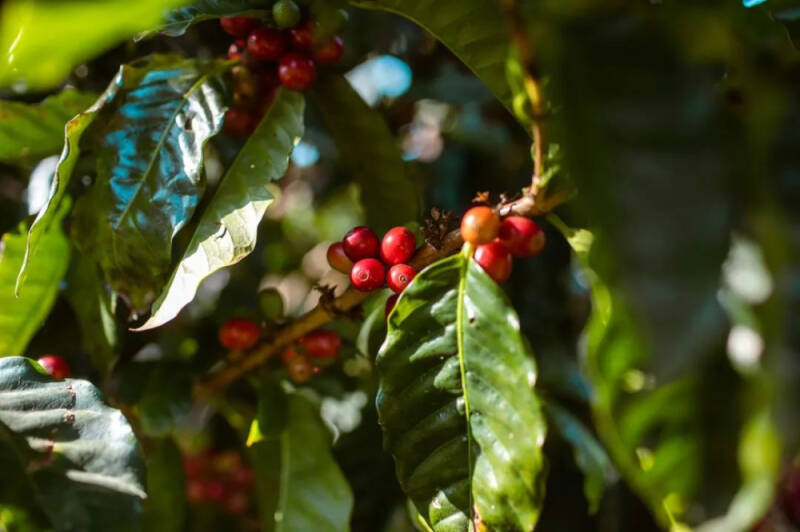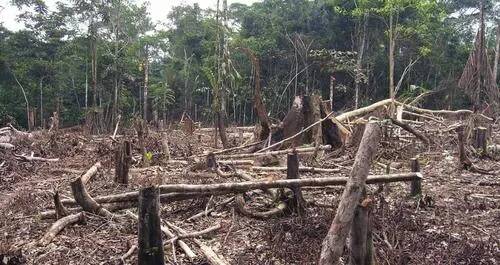Fairtrade International updates coffee standards to meet or exceed the EU's non-deforestation regulations EUDR
Recently, Fairtrade International, a sustainability certification organization, is publishing its updated coffee standards to meet or exceed the requirements of the EU No deforestation regulations (EUDR).
Fairtrade International has maintained its mission to support small farmers around the world, so the new standard adds monitoring and reporting requirements for teams of certified coffee producers as well as coffee buyers and traders within the Fairtrade system. The standard, which will come into effect in 2026, will apply to all Fairtrade certified coffee, not just those shipped to the European Union.

In the new standard, risk assessments and preventive measures, such as the use of geolocation data and deforestation monitoring data, are implemented to enhance the prevention of deforestation. The project organization system is also required to have a plan to enable it to use the results of its risk assessment and monitoring to carry out prevention and mitigation activities. Geolocation data must also be provided to all farm units for forest cover loss monitoring and traceability. According to Fairtrade International, the new coffee standards are designed to provide guidance to about 600 coffee cooperatives, representing about 870000 coffee farmers who grow 1.1 million hectares to meet non-deforestation requirements.
In announcing the new standards, senior climate and environment customers of International Fair Trade said that at present, people are living in an era of climate crisis, and for farmers, the frequency and severity of climate change will have a serious impact and endanger their livelihoods. Major changes in the global food system are therefore essential. In addition, the standard requires producer cooperative system prevention and mitigation plans, including satellite-based deforestation monitoring promoted by Fairtrade, so Fairtrade recently hired a Dutch company, Satelligence, to provide satellite monitoring services, which got up early to implement satellite monitoring of the coffee supply chain in Honduras and Uganda in cooperation with a number of importers.
In addition, Fairtrade International said in a public statement that EUDR needs geographic location data, but Fairtrade standards go a step further, requiring producer organizations to collect this information, payer and carrier Fairtrade reports, and to share this information with producer organizations to prevent deforestation. The rule points out the principle of fairness and means that the responsibility for protecting the environment must be shared by all who produce it.
The EU's non-deforestation regulations (EUDR), issued in June 2023, are expected to be formally implemented by large European companies from December 2024 to January 2025, mainly to prevent deforestation related to many agricultural products imported from the European Union, including coffee. A number of countries and producers are already implementing a series of measures to ensure compliance with EU deforestation regulations.

Important Notice :
前街咖啡 FrontStreet Coffee has moved to new addredd:
FrontStreet Coffee Address: 315,Donghua East Road,GuangZhou
Tel:020 38364473
- Prev

Teach you to make 6 different kinds of coffee with sweet-scented osmanthus! The course of making Dirty Coffee with Osmanthus Latte
Qianjie opened the city for the third day, during which colleagues took out their own home specialties to share with each other, and there was even a box of sweet-scented osmanthus cakes in the snack pile, which reminded Qianjie of the sweet-scented osmanthus coffee. Don't say much, start making a cup and have an aftertaste right away! Why sweet-scented osmanthus? Sweet-scented osmanthus is a flower full of fragrance.
- Next

How to heat cold coffee? Is the hand-brewed coffee good for the second time?
Temperature, an old topic in coffee circles, is almost inseparable from a suitable temperature zone, from the storage and baking of raw beans to the extraction and taste of ripe beans. Even if you are not in the habit of brewing coffee, you must always be told to drink it while it is hot. The implication is that after the coffee gets cold
Related
- What grade does Jamaica Blue Mountain No. 1 coffee belong to and how to drink it better? What is the highest grade of Blue Mountain coffee for coffee aristocrats?
- What are the flavor characteristics of the world-famous coffee Blue Mountain No. 1 Golden Mantelin? What are the characteristics of deep-roasted bitter coffee?
- Can I make coffee a second time in an Italian hand-brewed mocha pot? Why can't coffee be brewed several times like tea leaves?
- Hand-brewed coffee flows with a knife and a tornado. How to brew it? What is the proportion of grinding water and water temperature divided into?
- What is the difference between Indonesian Sumatra Mantinin coffee and gold Mantinin? How to distinguish between real and fake golden Mantelin coffee?
- What does bypass mean in coffee? Why can hand-brewed coffee and water make it better?
- Unexpected! Ruixing Telunsu lattes use a smoothie machine to foam milk?!
- % Arabia's first store in Henan opens into the village?! Netizen: Thought it was P's
- Does an authentic standard mocha coffee recipe use chocolate sauce or powder? Mocha Latte/Dirty Coffee/Salty Mocha Coffee Recipe Share!
- What is the difference between Vietnam egg coffee and Norway egg coffee? Hand-brewed single product coffee filter paper filter cloth filter flat solution!

